Competition between democracy and autocracy a political fallacy
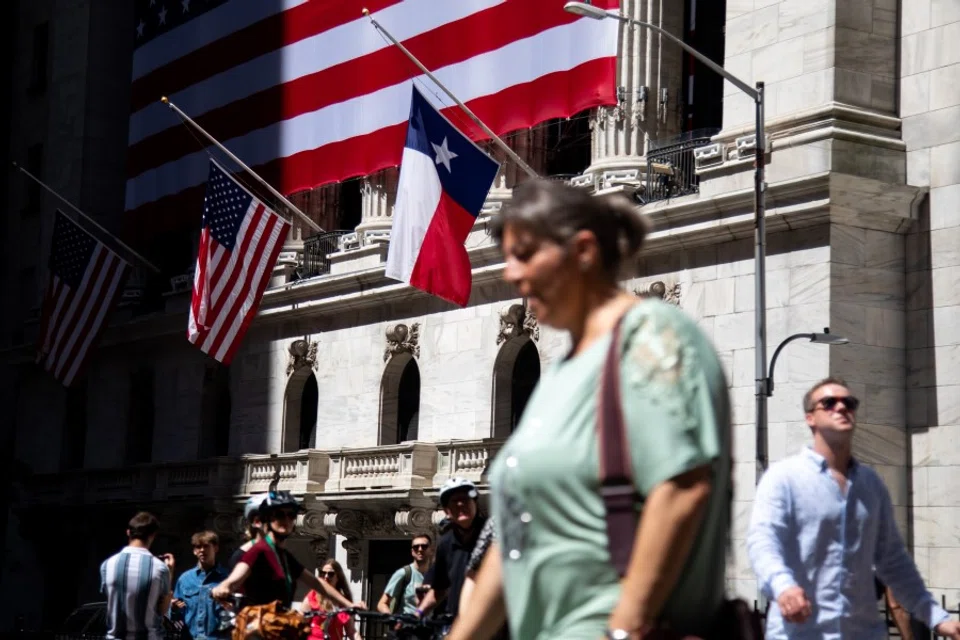
On the morning of 25 May, I was watching CNA when a Ukraine report was interrupted by breaking news.
A distraught and weary US President Joe Biden appeared on screen, saying heavily to the camera, "It is time to turn this pain into action. For every parent, for every citizen of this country... I'm sick and tired... Why? Why are we willing to live with this carnage? Why do we keep letting this happen?"
Triumphant return turned sombre
Biden had come straight to the White House from his 17-hour flight back from his Asia visit. He had been in Tokyo to launch the Indo-Pacific Economic Framework for Prosperity (IPEF) and attend the Quadrilateral Security Dialogue (Quad) summit. He also had meetings with his Indian, Japanese and Australian Quad counterparts and issued joint statements.
His high spirits were brought low, however, when he was informed mid-flight about the mass shooting at a primary school in Texas, and it was a grim-faced Biden who faced his fellow Americans when he landed.
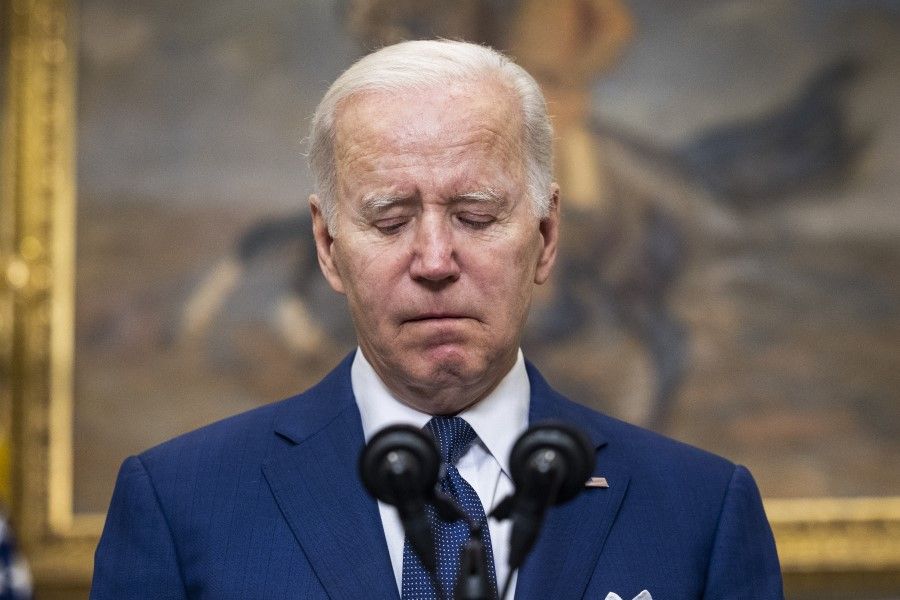
Since taking office in January last year, Biden has declared that one of the biggest tasks of his presidency is to show that American democracy and democratic capitalism still work. The most pressing challenge for the US is the fight between democracy and autocracy in the 21st century, and Biden has clearly defined the China-US rivalry within the framework of this ideological tussle.
Indeed, the IPEF and Quad are economic and military strategies that have been developed in line with this broader political approach. The main reason for excluding China is to contain it and prevent the global spread of autocracy.
But just as Biden returned to the US in triumph, 21 children and teachers were killed in the mass shooting in Texas, exposing the chronic ills of American democracy, and delivering a figurative slap to Biden's face.
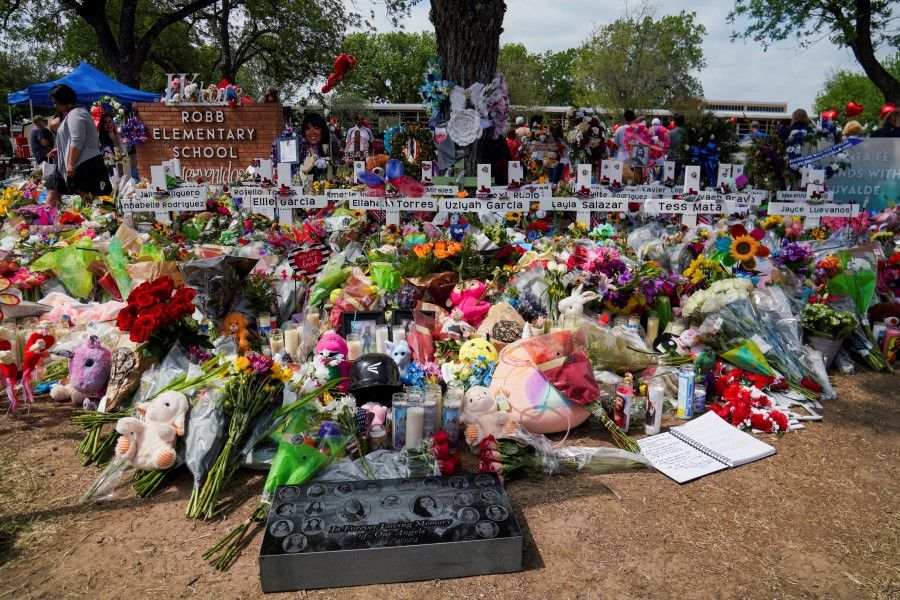
Such shootings are no longer unusual in the US. According to a Bloomberg report, this is the 213th mass shooting and the 27th school shooting in the US this year; and the 554th school shooting since the Columbine massacre in 1999 (which was known as the bloodiest school shooting at that time, with 13 killed and 24 injured). Indeed, gun violence has overtaken car accidents as the leading cause of childhood deaths in the US.
Politicising a tragedy
Whenever school shootings occur, we see heart-wrenching images of the victims' families, with people flocking to the schools in sympathy and mourning, and a sea of flowers placed outside the schools.
Officials and politicians are quick to make appearances or statements in righteous indignation. From the president and governors to local officials, concerned representatives and senators, they all condemn the violence and make passionate calls to end the tragedy.
Biden is definitely not the first president to ask, "When in God's name are we going to stand up to the gun lobby?"
Time after time, the cycle repeats and nothing changes. The two irreconcilable political parties have not been able to reach a consensus on stricter legislation for gun control.
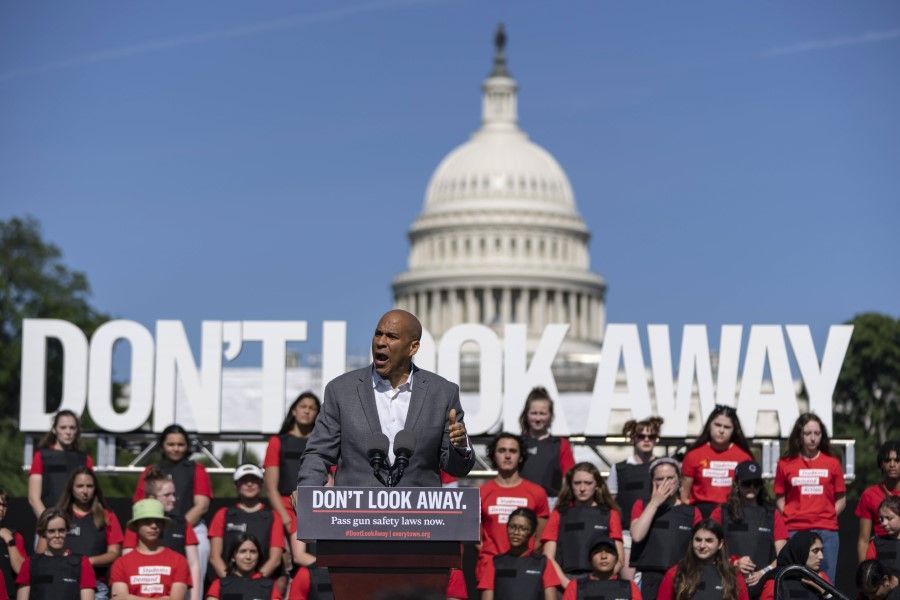
You will also notice that while some Democrat senators are taking the opportunity to strongly advocate for stronger gun legislation, Republican senators will first express their condolences to the victims' families and then shift to urge everyone to stay calm and not be so quick to "politicise" the tragedy.
Absurdly, after all the rigmarole, the public will shift its attention to side issues such as whether the police responded quickly enough, and whether security measures at the school were tight enough. Meanwhile, the most important question of why guns are so rampant is conveniently forgotten amid this sleight of hand.
Time after time, the cycle repeats and nothing changes. The two irreconcilable political parties have not been able to reach a consensus on stricter legislation for gun control. Those who want to buy guns with the intent to kill - even assault rifles with greater firepower - can easily do so.
Gun lobby intertwined with US politics
And so, after each tragedy settles, we can only wait for the next one. Why? Because the gun lobby in the US holds too much power.
Led by the National Rifle Association (NRA), they cite the Second Amendment as the basis for American citizens' sacred right to bear arms. The NRA has grown stronger over the years to become one of the most powerful lobbying groups in the US today, representing the economic interests of the gun industry and getting hefty sponsorships in return.
The interests of the NRA are intertwined with those of the politicians, and the association has an enormous budget to continue funding senators and influence gun policy.
Where is the value of a democracy that cannot even protect the fundamental right to life? And yet, the US continues to criticise other countries for disrespecting human rights!

And so, gun proliferation, shooters running riot, and frequent mass shootings have become a "terminal disease" in the US. To the rest of the world, the US is not at all like a modern democracy, but a lawless wild west.
Where is the value of a democracy that cannot even protect the fundamental right to life? And yet, the US continues to criticise other countries for disrespecting human rights!
Many academics have long pointed out that US democracy has devolved into a plutocracy, where governance and control belong to the ultra wealthy. Gun violence is one consequence of such plutocracy.
Besides plutocracy, US democratic politics has led to many other problems - that much is clear. Some obvious examples include the polarisation of the left and right in US politics, serious social division, a paralysed Congress, the lack of social justice and fairness, unequal distribution of wealth, and the breakdown of the healthcare system.
Americans seem to be far more preoccupied with the form of democracy rather than its results. It is common knowledge that the Democrats and the Republicans are at loggerheads regardless of the interests of the country, causing irreparable damage.
Former US President Donald Trump refused to acknowledge his loss in the 2020 election, and had incited and condoned a mob attack on 6 January 2021 at Capitol Hill, the highest temple of democracy. The insurrection was a desecration of democracy, and a historic event symbolising the fall of American democracy.
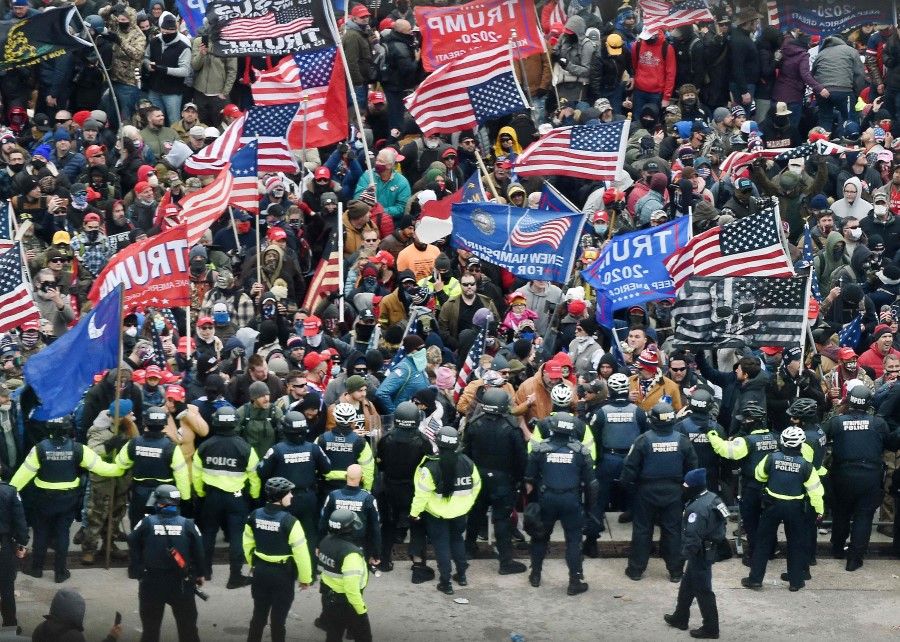
But if this is the democracy that Americans want, who are we to interfere? Americans have the right to choose their own system of democracy, and the right to embrace gun culture - and such rights should be internationally respected.
Yet, shouldn't the US also respect the rights of other countries to choose their own political system?
It is clear from the words and actions of the US government that it does not think so - it has always wanted other countries to accept its democratic values and emulate its political system. It wants other countries to choose sides along the ideological line between democracy and autocracy.
What is the basis for the US's adamance? Is it because the American political system is generally supported by the people?
Support of the people
What is the basis for the US's adamance? Is it because the American political system is generally supported by the people? Yet, data from authoritative international organisations tells us otherwise.
The 2022 Edelman Trust Barometer released by the world's largest global communications firm found that Chinese citizens have the most trust in their government, topping the leaderboard at a whopping 91%. On the other hand, just 39% of US citizens trust their government, recording a gap of 52 percentage points!
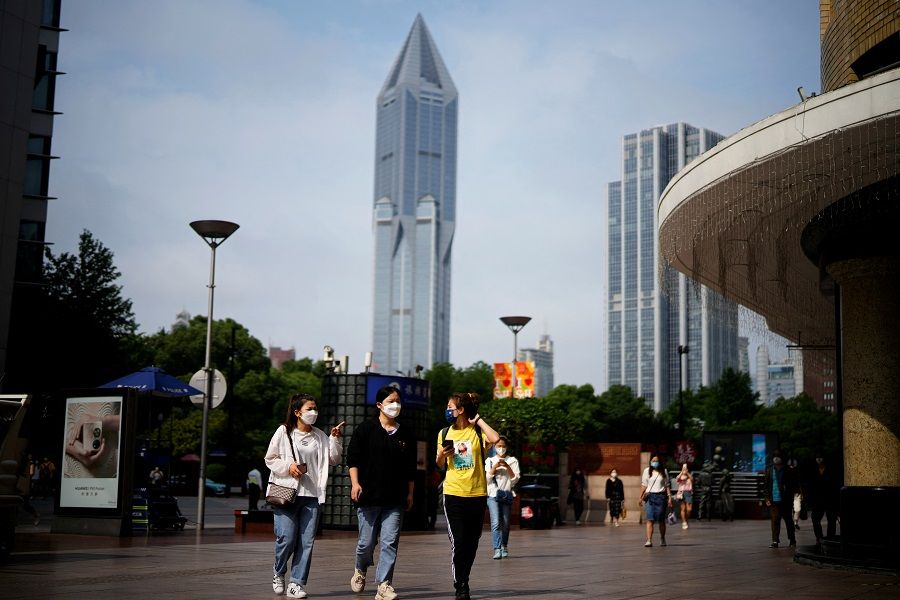
Edelman's findings are also corroborated by a Harvard University survey released in 2019. The 13-year survey conducted in China from 2003 to 2016 found that 95.5% of respondents were either "relatively satisfied" or "highly satisfied" with Beijing.
While there was no corresponding survey by Harvard University on Americans' support for their government, American analytics and advisory company Gallup reported in January 2020 that only 38% of respondents were satisfied with the US federal government, similar to Edelman's findings.
In other words, despite the US's negative perception, the Chinese government still receives a high level of support from its people. In contrast, Americans have little trust in the US government despite the positive perception about itself and its democratic system.
Notably, these surveys were conducted by authoritative American organisations using a standardised methodology, and the survey on China was not conducted by the Chinese.
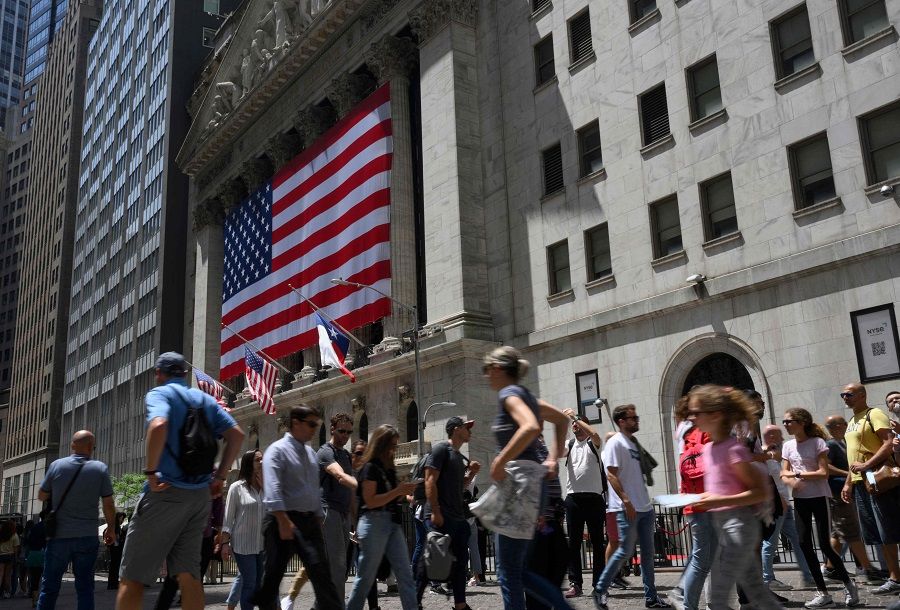
Setting aside China, another survey targeted at democracies also revealed that people in some developed countries, including the US, are not satisfied with the democratic system in their countries.
A 2021 Pew Research Center survey conducted on 19,000 people across 17 countries and regions revealed that fewer than half the people in the US, Greece, Italy, Spain, Japan, France and Belgium are satisfied with their country's democratic system.
In stark contrast, over three-quarters of the people in Singapore, Sweden and New Zealand are satisfied with their political systems. It is worth noting that the Americans do not consider Singapore a democracy, which explains why Singapore was not invited to Biden's first Summit for Democracy in December.
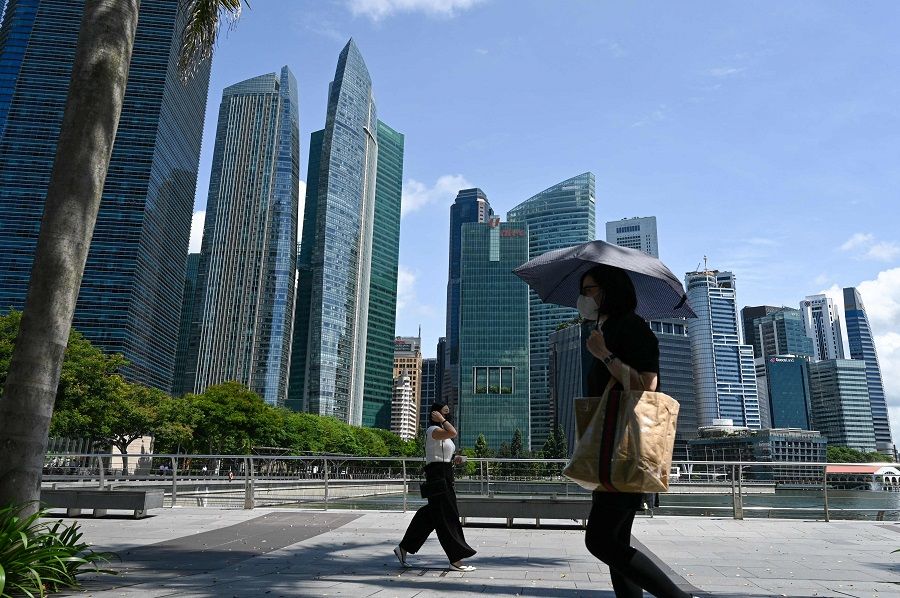
These convincing findings from the global surveys illustrate that the US, which prides itself on being a model of democracy, is plagued by democratic political ills and thus receives low levels of trust and satisfaction from the people. On the contrary, countries that the US considers less democratic or even autocratic are actually highly trusted or supported by their people.
So, why should the US demand other countries to accept its democratic system? How is it qualified to lead the world?
While we have no reason to accept American democracy, by no means are we supporting China's or Russia's "authoritarian" regimes either.
Ideological grey areas
While we have no reason to accept American democracy, by no means are we supporting China's or Russia's "authoritarian" regimes either. (It must be pointed out that China also claims to be a democracy, but it implements a "whole-process people's democracy".)
When authoritarian politics goes to extremes and becomes totalitarian politics, the consequences are terrifying. History is filled with such examples - from the Soviet Union's Joseph Stalin to Russia's President Vladimir Putin, and even China under Mao Zedong. These examples show us the frightening consequences when a personality cult spins out of control and absolute power lies solely in the hands of a supreme leader. A dictatorial rule is implemented, different opinions are not tolerated, and dissidents are brutally suppressed.
The leader acts at will, unencumbered by checks and balances, governing the country with political movements and implementing the wrong policies, causing unimaginable consequences. This was clearly seen in the Great Leap Forward and the Cultural Revolution, which caused an incalculable amount of calamities, a shocking loss of lives and property, and the destruction of morals and humanity.

But whether China implements a democratic or authoritarian system, it has never demanded other countries to adopt its governance framework, as the Chinese government has always reiterated. At least since the Deng Xiaoping era, China has stopped exporting revolution.
Instead, even after China stopped exporting revolution, the US has continued to export American democracy, especially following the end of the Cold War. It has even waged colour revolutions through non-democratic or improper means to "democratise" other countries. But these attempts often backfired and brought about tragic consequences because they are a misfit.
Ideologically, the world today is not black and white - there are many grey areas. China has long integrated into the world economy and become a powerful economic driving force.
Now, the US is framing the war in Ukraine and the China-US rivalry as a competition between democracy and autocracy. It insists on drawing lines in international relations based on ideology, pushing China to the autocratic side. It also wants countries to choose either America's democracy or China's autocracy, to distinguish friend from foe.
In fact, the last century's rivalry between communism and Western camps over political ideology and the economy has long disappeared following the end of the Cold War. Ideologically, the world today is not black and white - there are many grey areas. China has long integrated into the world economy and become a powerful economic driving force.
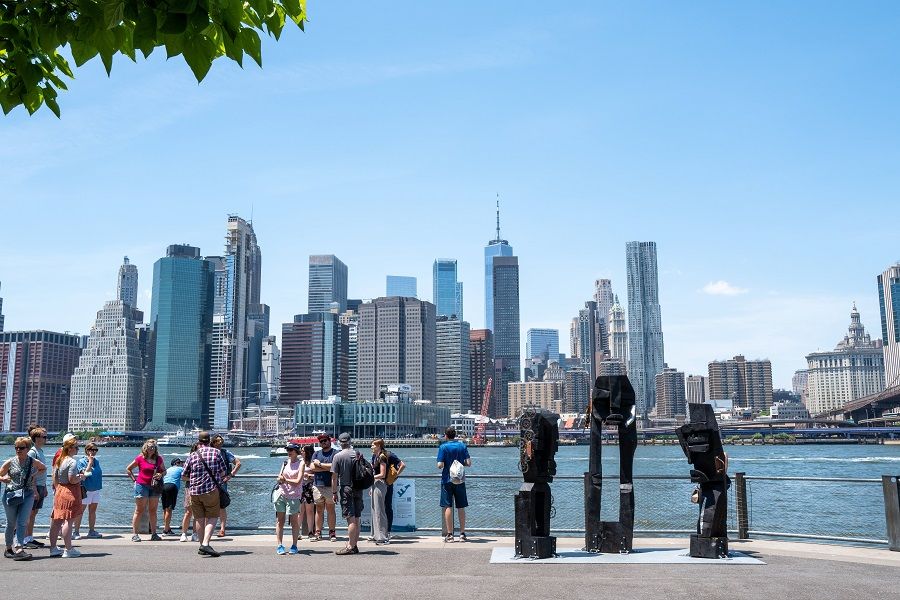
Thus, the competition between democracy and autocracy is clearly a political fallacy in the 21st century, and such a dichotomy is utterly inconsistent with the objective reality of today's world.
The Singapore government has clearly stated that it does not accept thinking about international relations in this manner. Singapore Prime Minister Lee Hsien Loong even believes this is not helpful and "makes things even more difficult". None of the other ASEAN countries have accepted such a mentality as well.
... pressure from the US will only increase and the manoeuvring space of ASEAN and other Asian countries will only get smaller.
However, Biden seems determined to carry out this self-imposed mission and has firmly pushed forward with this agenda since he took office, and especially when his reelection is on the line, he has to take a tougher stance towards China compared with his opponents.
Thus, pressure from the US will only increase and the manoeuvring space of ASEAN and other Asian countries will only get smaller. This is a very dangerous trend and we cannot but be vigilant.
Related: Russian academic: Whose ideology will rule an emerging 21st century world? | China wants to create a new democratic system. Is that possible? | The curse of political correctness in China and the US | China is not the answer to America's problems | War of words: China and the US tussle for speaking rights on democracy | China-US strategic showdown: Will the east wind prevail over the west wind?
